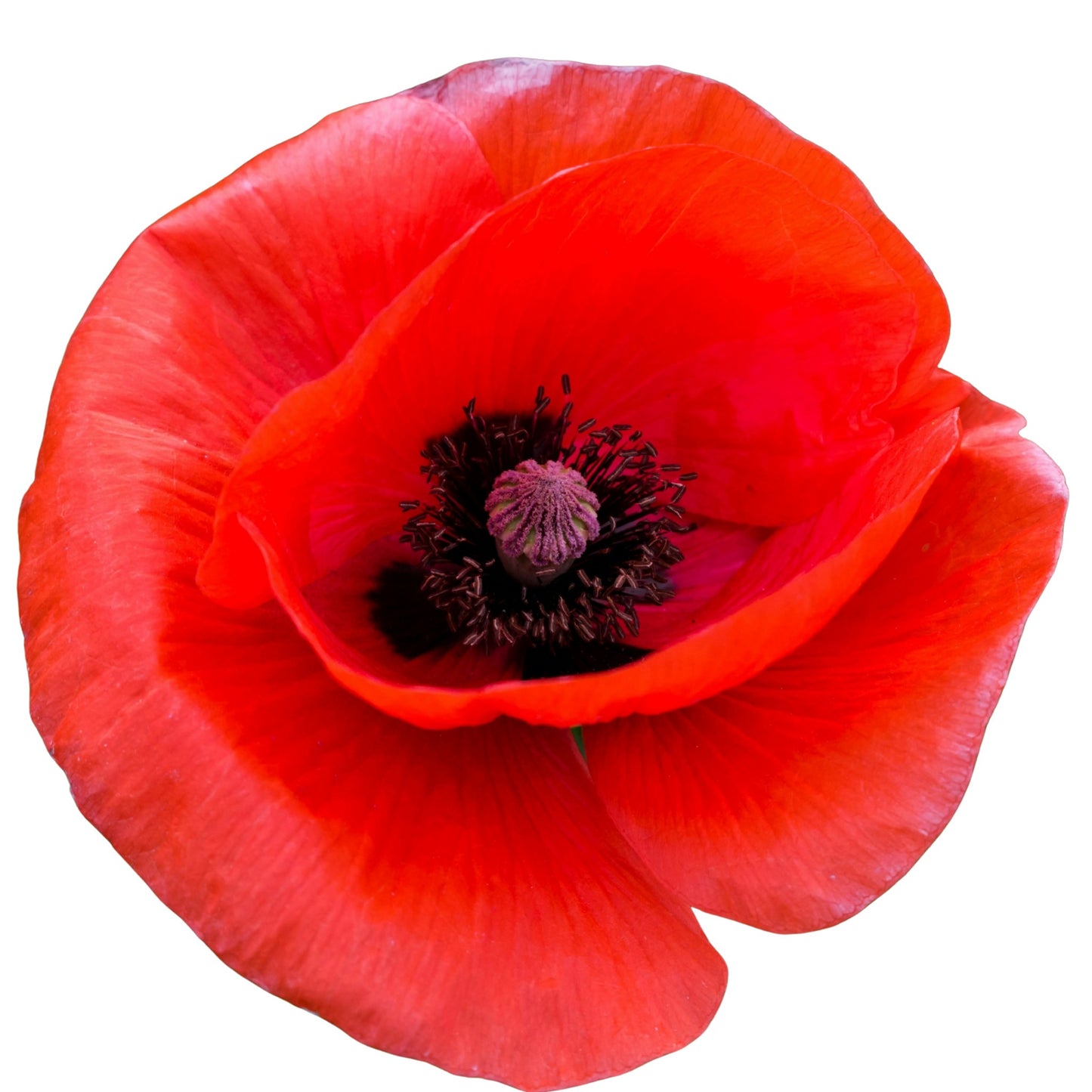Jonquil
Poppy Flanders Single Red - 0.1 Gram
Poppy Flanders Single Red - 0.1 Gram
Couldn't load pickup availability
Poppy 'Flanders Single Red' (Papaver rhoeas), also known as Common Poppy, Field Poppy, or Remembrance Poppy, is a hardy annual that produces brilliant scarlet-red, single-petaled flowers with a black centre. These delicate yet striking flowers grow on slender, hairy stems and are known for their graceful, papery texture.
Each flower reaches about 7–10 cm in diameter, blooming profusely from late spring to mid-summer. The plant grows to a height of 30–60 cm with a spread of 20–30 cm, making it ideal for wildflower meadows, cottage gardens, borders, and pollinator-friendly spaces.
Poppies are excellent self-seeders, meaning they can naturally reappear each year if allowed to drop their seeds. They are also pollinator-friendly, attracting bees, butterflies, and other beneficial insects.
Growing Guide
Soil Requirements
Prefers well-drained, light, and moderately fertile soil.
Tolerates poor, sandy, or rocky soil but does not thrive in heavy, clay-based soil.
Ideal soil pH: 6.0–7.5 (neutral to slightly acidic).
Does not require additional fertilizers.
Sunlight & Location
Requires full sun (6–8 hours per day) for optimal flowering.
Can tolerate partial shade, but this may lead to weaker stems and fewer blooms.
Ideal for wildflower meadows, cottage gardens, roadsides, and naturalized areas.
Planting & Germination
Starting from Seeds (Direct Sowing Recommended)
Best Time to Sow:
Autumn sowing (best method): Late autumn (September–November) for early blooms the following year.
Spring sowing: Sow in March–May for flowers in summer.
Direct Sowing:
Scatter seeds on the soil surface—do not cover deeply, as they need light to germinate.
Lightly press seeds into the soil for good contact.
Water gently to keep the soil evenly moist but not soggy.
Spacing: Thin seedlings to 15–30 cm apart once they are about 5 cm tall.
Germination Time: 7–14 days at temperatures around 15–20°C.
Watering
Water lightly and regularly during germination and early growth.
Once established, poppies are drought-tolerant and require minimal watering.
Avoid overwatering, as soggy soil can lead to root rot.
Fertilization
No fertilization required for most soils.
If grown in very poor soil, a light application of compost or balanced fertilizer (5-10-10) may be added before sowing.
Avoid high-nitrogen fertilizers, which promote leafy growth over flowers.
Maintenance & Pruning
Deadhead spent flowers regularly to prolong blooming.
Allow some flowers to go to seed if you want natural reseeding for the following year.
If plants become leggy, trim back slightly to encourage stronger growth.
Pest & Disease Control
Generally pest-resistant, but watch for:
Aphids – treat with insecticidal soap if necessary.
Slugs & Snails – hand-pick or use organic deterrents.
Diseases:
Avoid overcrowding to prevent fungal issues like powdery mildew.
Ensure good air circulation and avoid overhead watering.
Companion Planting
Best Companion Plants:
Cornflowers, daisies, foxgloves, and lavender for a natural, wildflower look.
Vegetables: Poppies attract pollinators, making them a great addition near crops like tomatoes, beans, and cucumbers.
Avoid planting in overly fertile gardens, as they prefer leaner soils.
Harvesting & Uses
Cut Flowers:
Harvest in the morning when blooms are just opening.
Sear stem ends with a flame for longer vase life.
Seed Collection:
Allow flowers to dry and collect seed pods for replanting.
Shake dried pods over prepared soil for natural reseeding.
Key Benefits of Growing 'Flanders Single Red' Poppies
Brilliant red blooms create a stunning, classic display.
Drought-tolerant & low maintenance, ideal for wildflower meadows.
Self-seeding, ensuring future blooms with minimal effort.
Attracts pollinators like bees and butterflies.
Symbolic flower, often associated with Remembrance and peace.
Would you like tips on growing poppies in containers or maximizing self-seeding?
Share


